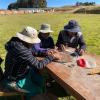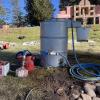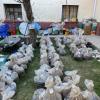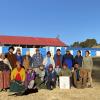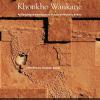Sample Processing and Curation from recent TAP fieldwork
The long term Taraco Archaeological Project conducted two excavation field seasons in 2022 and 2023 in the Early Formative period sectors of sites Chiripa, Chiriamaya, and Chiripata, located next to each other along the Taraco Peninsula, Lake Titicaca, Bolivia. The team conducted a range of collection strategies during the excavations, with a focus on contextual recording of artifact and ecofact material, systematically collecting archaeobotanical, zooarchaeological, and bio-archaeological material.






